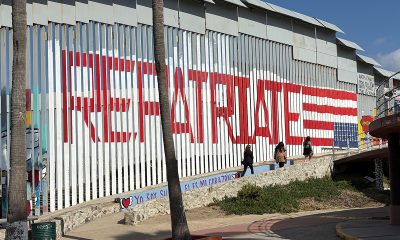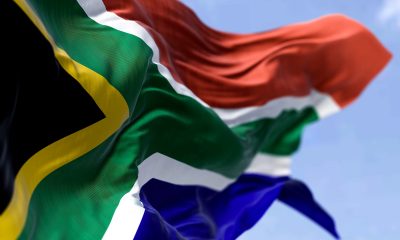South Africa
South Africa groups offer muted response to president’s pledge to protect LGBTQ rights
Cyril Ramaphosa gave State of the Nation speech on Feb. 6
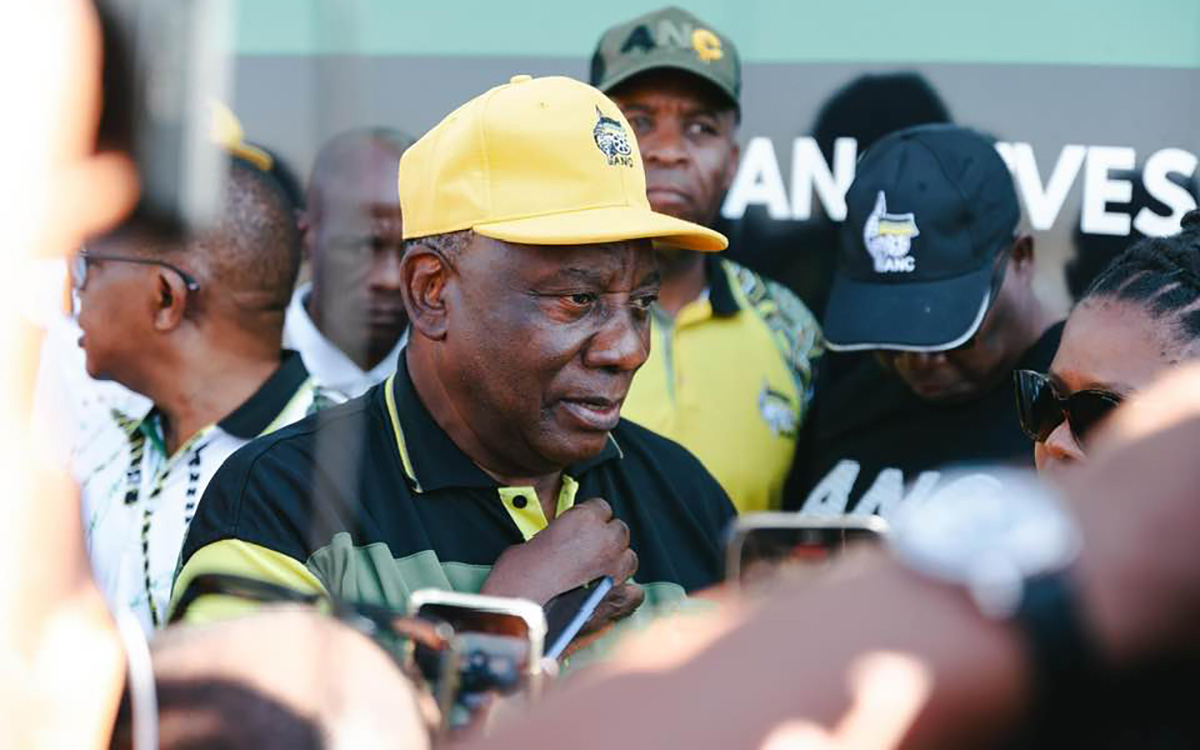
Several South African advocacy groups say they are not moved by President Cyril Ramaphosa’s pledge to protect LGBTQ rights during the State of the Nation speech he delivered in Cape Town on Feb. 6.
“As South Africans, we stand for peace and justice, for equality and solidarity. We stand for non-racialism and democracy, for tolerance and compassion,” said Ramaphosa. “We stand for equal rights for women, for persons with disability and for members of the LGBTQI+ community.”
Even though the president made the proclamation, LGBTQ South Africans continue to face hate crimes that often end in the loss of life, despite laws that include the Preventing and Combating of Hate Crimes and Hate Speech and the prohibition of discrimination based on sexual orientation enshrined in the constitution.
In addition, U.S. President Donald Trump’s 90-day moratorium on nearly all American foreign aid has impacted several LGBTQ organizations in South Africa.
Bruce Walker, convenor of Pretoria Pride, said he appreciated Ramaphosa’s comments about the protection of LGBTQ rights, but added they were mere grandstanding.
“We really appreciate him saying this and it’s a good thing for an African leader to speak out about the rights of the LGBTI community. LGBTI rights are in our Bill of Rights and constitution,” said Walker. “However, the president’s utterances were just pure window dressing because the current government refuses to condemn the treatment of LGBTI communities in Africa, and are very quiet on the imprisonment and execution of LGBTI people in the world but fight and spend millions to condemn Israel.”
Iranti nevertheless said it expected the president to stay true to his word and ensure the rights of the LGBTQ community are protected as the country’s constitution outlines.
‘President Ramaphosa affirmed that he stands with members of the LGBTQIA+ community, a very important act as we witness a regression of LGBTQIA+ rights and the growth of anti-gender movements across the globe,” said Iranti. “We urge the president to follow up on this commitment, with concrete strategies and actions that will improve the lives of LGBTQIA+ people in South Africa.”
South Africa is the only African country that constitutionally recognizes LGBTQ rights. Many South Africans, however, do not recognize the LGBTQ community because of cultural and religious beliefs and the idea that homosexuality is a Western import.
The suspension of nearly all U.S. foreign aid has impacted the Uthingo Network, OUT LGBT Well-Being, Iranti, and other advocacy groups. Trump on Feb. 7 signed an executive order that limits American financial assistance to South Africa because of the Expropriation Act that Ramaphosa signed last month.
Though the Expropriation Act involves compensation, some of the land the government has deemed of public interest — for infrastructure projects, public service expansion, and environment conservation — can be expropriated without permission. Trump said the law violates South Africans’ rights.
South Africa
Transgender inmate sues South Africa prison officials
Nthabiseng Mokoena alleges mistreatment at Johannesburg Correctional Center
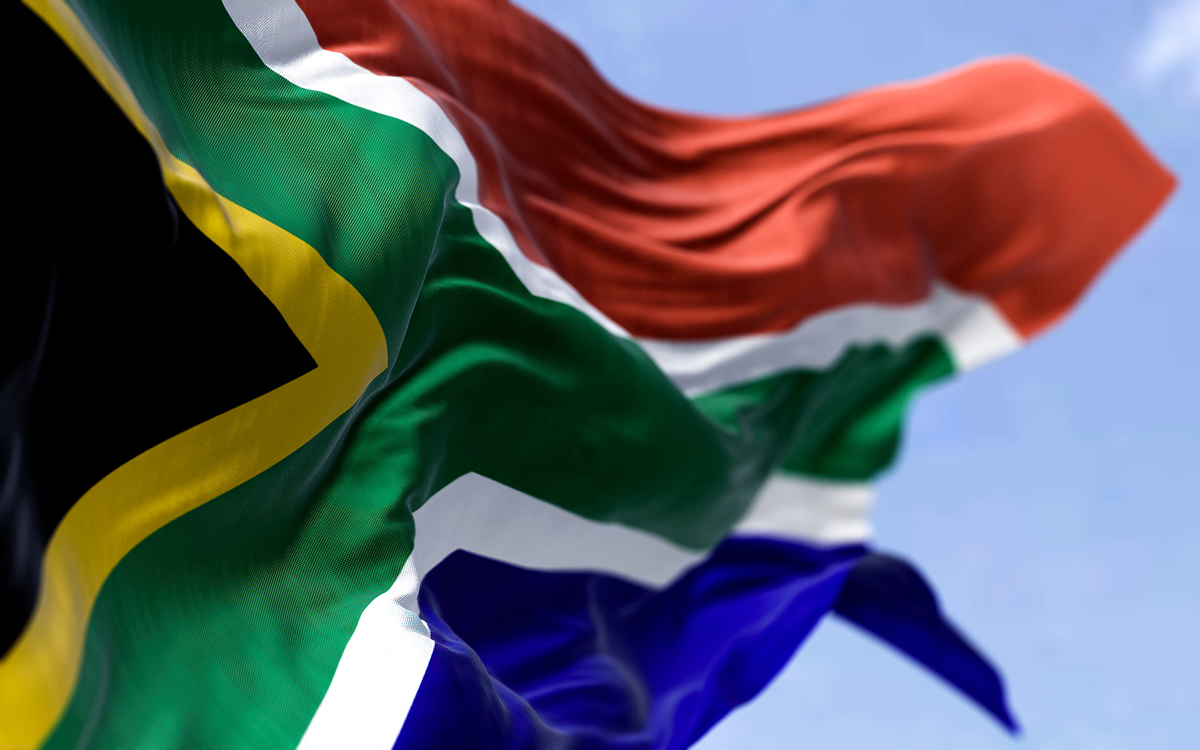
South Africa’s transgender community is eagerly anticipating a court ruling that could change their lives.
The Equality Court at the Gauteng High Court in Johannesburg on Sept. 12 reserved judgment for a case brought by Nthabiseng Mokoena, a trans woman who is an inmate at the Johannesburg Correctional Center (Sun City Prison) against the Department of Correctional Services and other officials.
According to Mokoena, who is being represented by Lawyers for Human Rights and others, the DCS commits systemic discrimination against trans inmates by refusing to recognize their gender identity and denying them basic gender-affirming rights.
Mokoena also argued the DCS has violated her rights by refusing her chosen name and pronouns, not allowing her to wear clothing and use cosmetics and toiletries that correspond with her gender expression, bullying her, and denying her gender-affirming healthcare.
“The transphobia within DCS’s senior management is undeniable,” said Mokoena. “There’s a clear difference in how heterosexual inmates are treated compared to members of the LGBTQI+ community. The LGBTQI+ community is often treated as less than human.”
Mokoena also said there is no recourse for her and other trans people when they are victimized; they are rather punished when they try to stand up for themselves.
“When we are hurt or attacked, no one speaks up or does anything to help,” said Mokoena. “Those who harm the LGBTQI community are never held responsible. What is worse, when we try to defend ourselves or speak out about the unfair treatment, we are the ones who get punished.”
Mokoena as a result wants the court to order the defendants to provide her with gender-affirming healthcare, assistance in legally changing her name and gender marker, and to be housed in a single cell or with other inmates who share her gender identity.
Letlhogonolo Mokgoroane, a nonbinary lawyer who represents Mokoena, said gender-affirming healthcare is recognized by medical professionals worldwide as essential healthcare.
“Gender-affirming care is not elective or optional, it is life-saving,” said Mokgoroane. “Denial of such care amounts to cruel and inhumane treatment, which is incompatible with the values enshrined in our constitution and international human rights standard. Trans rights are human rights.”
Access Chapter 2, a local LGBTQ organization which filed an amicus brief in support of Mokoena in the Equality Court, said it stands with her and all trans people who face systematic discrimination.
“Our submissions emphasized that gender-affirming healthcare is an essential component of primary healthcare, not an elective treatment. Denying access to gender-affirming healthcare violates the constitutional rights of transgender people to equality, dignity, and healthcare, especially those in detention facilities,” said Access Chapter 2.
Thabsie Mabezane, acting media and programs director at Lebo Basadi Foundation, an LGBTQ rights organization, said trans issues are complex and multifaceted and require a comprehensive approach that addresses legal discrimination, societal stigma, economic oppression, and healthcare access.
“Socially transitioning individuals who choose to live as their preferred gender without medical intervention, face unique challenges,” noted Mabezane. “They often lack access to essential services, including healthcare and social support, and may be excluded from projects aimed at uplifting LGBTQ+ individuals, hence the need to promote inclusivity, supporting advocacy efforts, and addressing the specific needs of transgender individuals.”
Even though South Africa has made strides in recognizing and advancing the rights of trans people, systematic and deeply-rooted transphobia in the country make it difficult for them to live openly and access gender-affirming health care.

South Africa National Assembly Speaker Thoko Didiza on June 17 swore in lesbian feminist Palomino Jama as a new MP.
Jama joins other LGBTQ legislators — including Public Works and Infrastructure Minister Dean Macpherson; Forestry, Fisheries and the Environment Minister Dion George; and Deputy Women, Youth, and Persons with Disabilities Minister, Steve Letsike.
Jama said she will work hard and excel as MP.
“What a great moment to be alive. Thank you youth of 1976, thank you Simon Nkoli, Phumi Mthetwa, Paddy Nhlaphos, Vanessa Ludwig, and others for what you did for the LGBTI people in the 80s and 90s. Lastly, for the fierce fist of the Jamas to always hit where it matters for the people of this country,” said Letsike.
Embrace Diversity Movement, a local LGBTQ organization, said Jama’s inauguration came at an appropriate time, during Pride month.
“Her swearing-in took place during a month of profound significance in June, which marks both international Pride Month and Youth Month in South Africa,” said the group. “Palomino is a seasoned queer activist and dedicated community builder with a distinguished record of leadership and service.”
“The EDM proudly supports Palomino in her deployment to parliament, her presence meaningfully advances youth and queer representation in public office,” added the Embrace Diversity Movement. “We are confident that she will serve the people of South Africa with integrity, courage, and distinction.”
South Africa is the only African country that constitutionally upholds LGBTQ rights. There are, however, still myriad challenges the LGBTQ community faces on a daily basis that range from physical attacks to online abuse.
Letsike in May faced a barrage of online attacks after she released a scathing statement against popular podcaster Macgyver “MacG” Mukwevho, who during a podcast episode in April insinuated that the reason behind popular socialite Minnie Dlamini’s “unsuccessful” relationships were probably due to the bad odor from her genitals.
Letsike, who viewed MacG’s comments as offensive, called for the podcaster to be summoned before parliament’s Portfolio Committee on Women, Youth, and Persons with Disabilities and criticized the local television station that aired the podcast.
X users and other social media subscribers bombarded Letsike with anti-lesbian comments. She, however, was unphased.
Letsike continues to face anti-lesbian comments, even though MacG apologized and the television station on which his podcast had aired cancelled its contract with him.
South Africa
South African activists demand action to stop anti-LGBTQ violence
Country’s first gay imam murdered in February
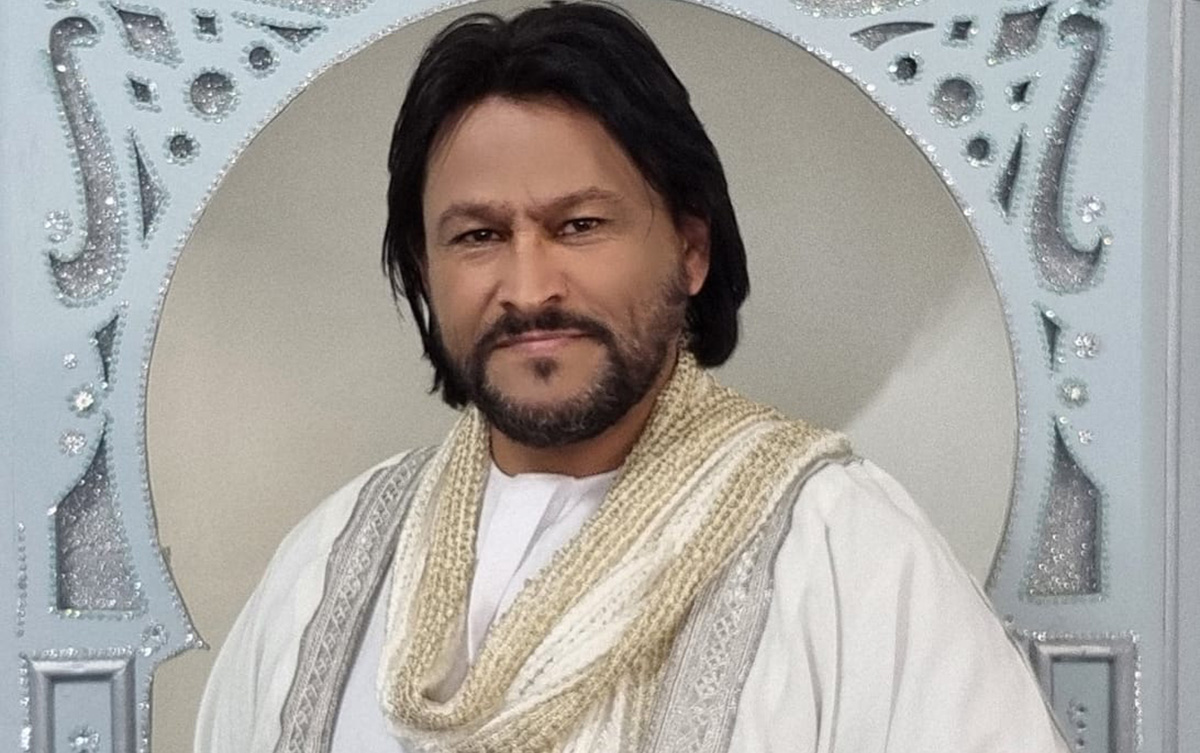
Continued attacks of LGBTQ South Africans are raising serious concerns about the community’s safety and well-being.
President Cyril Ramaphosa in May 2024 signed the Preventing and Combating of Hate Crimes and Hate Speech Bill into law that, among other things, has legal protections for LGBTQ South Africans who suffer physical, verbal, and emotional violence. Statistics from the first and second quarters of 2025 have painted a grim picture.
Muhsin Hendricks, the country’s first openly gay imam, in February was shot dead in Gqeberha, in a suspected homophobic attack. Authorities in April found the body of Linten Jutzen, a gay crossdresser, in an open field between an elementary school and a tennis court in Cape Town.
A World Economic Forum survey on attitudes towards homosexuality and gender non-conformity in South Africa that Marchant Van Der Schyf conducted earlier this year found that even though 51 percent of South Africans believe gay people should have the same rights as their heterosexual counterparts, 72 percent of them feel same-sex sexual activity is morally wrong. The survey also notes 44 percent of LGBTQ respondents said they experienced bullying, verbal and sexual discrimination, and physical violence in their everyday lives because of their sexual orientation.
Van Der Schyf said many attacks occur in the country’s metropolitan areas, particularly Cape Town, Durban, and Johannesburg.
“Victims are often lured to either the perpetrator’s indicated residence or an out-of-home area under the appearance of a meet-up,” said Van Der Schyf. “The nature of the attacks range from strangulation and beatings to kidnapping and blackmail with some victims being filmed naked or held for ransom.”
The Youth Policy Committee’s Gender Working Group notes South Africa is the first country to constitutionally protect against discrimination based on sexual orientation and the fifth nation in the world to extend marriage rights to same-sex couples. A disparity, however, still exists between legal protections and LGBTQ people’s lived experiences.
“After more than 20 years of democracy, our communities continue to wake up to the stench of grief, mutilation, violation, and oppression,” said the Youth Policy Committee. “Like all human beings, queer individuals are members of schooling communities, church groups, and society at large, therefore, anything that affects them should affect everyone else within those communities.”
The Youth Policy Committee also said religious and cultural leaders should do more to combat anti-LGBTQ rhetoric.
“Religious institutions seem to perpetuate the hate crimes experienced by queer individuals,” said the group. “In extreme cases, religious leaders have advocated for killings and hateful crimes to be committed against those in the queer community. South Africa’s highly respected spiritual guides, sangomas, are also joining the fight against queer killings and acts of transphobia and homophobia.”
“The LGBTQIA+ community is raising their voice and they need to be supported because they add a unique color to our rainbow nation,” it added.
Steve Letsike, the government’s deputy minister for women, youth, and persons with disabilities, in marking the International Day Against Homophobia, Biphobia, and Transphobia on May 17 noted Ramaphosa’s administration has enacted legislative framework that protects the LGBTQ community. Letsike, however, stressed the government still needs to ensure its implementation.
“We have passed these policies and we need to make sure that they are implemented fully and with urgency, so that (LGBTQ) persons can self-determine and also have autonomy without any abusive requirements,” said Letsike. “We need families, faith leaders, traditional authorities, and communities to rise together against hate. Our constitution must remain respected.”
Siphokazi Dlamini, a social justice activist, said LGBTQ rights should be respected, as enshrined in the constitution.
“It is terrible to even imagine that they face discrimination despite the fact that this has been addressed numerous times,” said Dlamini. “How are they different from us? Is a question I frequently ask people or why should they live in fear just because we don’t like the way they are and their feelings? However, I would get no response.”
Dlamini added people still live in fear of being judged, raped, or killed simply because of who they are.
“What needs to be addressed to is what freedom means,” said Dlamini. “Freedom means to have the power to be able to do anything that you want but if it doesn’t hurt other people’s feelings while doing it. There is freedom of speech, freedom from discrimination, freedom of expression, of thought, of choice, of religion, of association, and these needs to be practiced. It is time to take such issues seriously in order to promote equality and peace among our people, and those who do not follow these rules should be taken into custody.”
Van Der Schyf also said LGBTQ South Africans should have a place, such as an inquiry commission, that allows them to talk about the trauma they have suffered and how it influences their distrust of the government.

